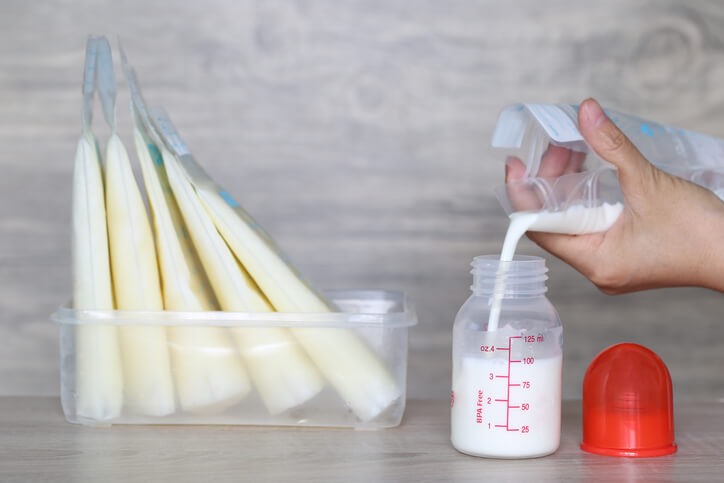How to Practice Self-Care Throughout Your Surrogacy Journey
Becoming a parent through surrogacy is always an exciting but nerve-wracking experience. There is so much that is out of your control. Your baby’s health and safety are in the hands of a woman you may have only recently met (perhaps only virtually), and that can be a scary thought.
Now, with the global threat of COVID-19, there may feel like even more things to worry about as you try to grow your family through surrogacy. During these new and evolving times of social distancing and lockdowns, everyone’s mental health is feeling a little taxed. But when you’re in the midst of a surrogacy journey you’re even more stressed — and it’s important that you not neglect your emotional wellbeing.
Remembering to take time for self-care will not only help you mentally and physically, it’ll also help you be able to better emotionally support your gestational surrogate. We’re always most able to care for others when we first care for ourselves!
With that in mind, here are some tips to help you find some peace as you progress through the surrogacy process during COVID-19:
Find work-life balance when working from home.
If you’re able to work from home right now, it can be both a blessing and a curse. When you’re already stressed about your surrogacy process, it can be tempting to throw yourself into your work. You might find yourself replying to emails at 1 a.m., forgetting to have lunch when you’re trying to finish that project, or generally forgetting to “turn off” from work.
Try to establish your work routine and stick to it, so you can set your work down at the end of your day and be fully present in your home life. Set boundaries for yourself as to when you’re “at work” and when you’re “at home,” even if both are just in your living room!
Keep yourself healthy.
Not only will focusing on your physical health boost your immune system in the midst of a pandemic, you’ll also feel mentally and emotionally better if you’re taken care of physically.
In addition to the standard COVID-19 precautions of wearing masks, washing hands and social distancing, there are simple things you can do every day to help keep yourself physically healthy:
Don’t forget to exercise.
If you were a gym person before the pandemic, you’ve likely had to adjust how and where you work out. But don’t let your routine slip just because you’re at home!
Now is the perfect time to try something new in an effort to properly socially distance, or to start exercising more regularly in general. There are plenty of ways to stay active while maintaining a safe social distance, like:
- Going for a walk or run
- Riding bikes
- Playing your favorite games in the yard with your family
- A long play session with the dog
- Yoga or pilates
Engage in your favorite hobbies.
Some of the things you enjoy the most can help you unwind and take your mind off of worrying about the surrogacy process. Plus, many hobbies can be enjoyed from home while we all social distance.
Now is also a great time to explore some new interests that you’ve always put off, like:
- Getting more into cooking or baking
- Reading something new
- Getting crafty, like learning to knit or sew
- Hopping into new exercise routines
- Playing games with friends remotely
- Trying your hand at music, drawing, writing, etc.
- Starting up a jigsaw puzzle
It might seem silly, but taking time for hobbies (whether small amusements or lifelong passions) can give your mental health a serious boost.
Set aside time to relax.
Many people are juggling work, kids being home and now a surrogacy journey. It can feel like there aren’t enough hours in the day.
But try to make relaxation one of your priorities. Surrogacy is an emotional and often busy experience. Set aside even just a few minutes of every day to relax, slow your heart rate and calm your mind.
Find whatever works for you, but consider:
- Meditation or prayer
- Sitting outside and just taking in your surroundings free of distractions
- Going for a walk
- Taking a long bath
- Treating yourself to a quick spa-style pampering session at home
- Having a slow cup of tea
- Trying breathing exercises
- Stretching out any physical tension
Talk it out with your loved ones.
Whether you want to vent out some stress about surrogacy, or you’d like to chat about anything but surrogacy to take your mind off of it, calling up your friends or family can be helpful. If you’re married, continuing to openly communicate and strengthen your relationship will be even more important as you work to grow your family.
Now more than ever, it’s important to find ways to stay close and connected, even while we’re apart. A video chat with someone you haven’t caught up with in a while may be just what you’ve both been needing.
What’s better to calm your worries than hearing words of reassurance from someone you love and trust?
Get to know your surrogate from a distance.
When you’re not able to meet or spend time together in person, it can be hard for the reality of surrogacy and pregnancy to sink in for you. Additionally, the relationship between the intended parents and surrogate is important — you’re sharing an intimate and personal experience.
Feeling like you know your surrogate well and that you have a strong connection will help you to feel more at ease and trusting during a particularly scary time. This is the perfect opportunity to get to know one another through phone calls, video chats, texts, emails, photos or whatever everyone prefers.
You can talk about the process, the baby, what you’ve all been up to during quarantine, each others’ families, or just about your shared interests. Talking with your surrogate can be reassuring and fun, and it’ll help you remember to feel excited about this experience rather than stressed out!
There are also plenty of surrogates and intended parents online you can connect to for support and inspiration.
Try not to obsess.
Having this child is going to be on the forefront of your mind. It can be easy for surrogacy to consume your thoughts, and it can even more easily spiral into obsessive worrying, especially with fears of COVID-19.
But if you’re spending too much time worrying about whether or not your surrogate and her medical team are taking proper precautions against the virus, or you’re focusing too much on the anxieties of surrogacy, then it’s time to take a step back. Your mind can be your own worst enemy right now.
When you feel like you’re starting to obsess, take a moment to breathe and refocus that energy elsewhere. Anything that gives you a mental vacation from surrogacy can be beneficial:
- Call up a friend and talk about something other than surrogacy for a while.
- Grab the remote and binge a new series.
- Tackle a home project that you’ve been putting off.
- Take a break from baby preparations.
- Take a short road trip to your favorite park or camping spot.
Lean on your American Surrogacy specialist.
We’ll always be here to support you. Reach out if you have questions or concerns regarding COVID-19 and your surrogacy process, or about your journey in general.
Remember that you’re not facing this on your own. You’re in good hands. Your specialist is doing everything they can to protect your child, and to make sure you and your surrogate have a safe, healthy and positive experience.









